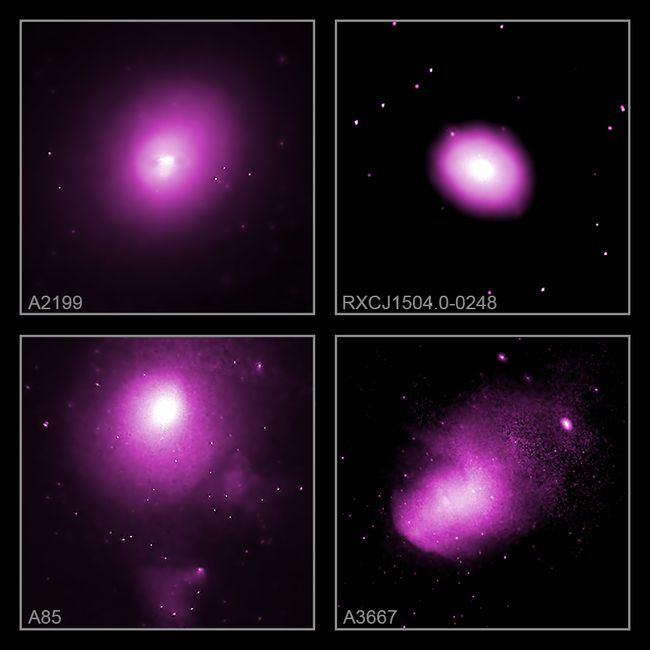Surprise! The Universe’s Expansion Rate may Vary from Place to Place
The new results challenge a core tenet of modern cosmology.
By Mike WallApril 9, 2020 | The universe may not be the same in every direction after all.
The expansion rate of the universe appears to vary from place to place, a new study reports. This finding, if confirmed, would force astronomers to reassess just how well they understand the cosmos.
These four galaxy clusters were among hundreds analyzed in a large survey to test whether the universe is the same in all directions over large scales. The study results suggest the concept of an “isotropic” universe may not entirely fit.
(Image: © NASA/CXC/Univ. of Bonn/K. Migkas et al.)“One of the pillars of cosmology — the study of the history and fate of the entire universe — is that the universe is ‘isotropic,’ meaning the same in all directions,” study lead author Konstantinos Migkas, of the University of Bonn in Germany, said in a statement. “Our work shows there may be cracks in that pillar.”
The universe has been expanding continuously for more than 13.8 billion years, ever since the Big Bang — and at an accelerating rate, thanks to a mysterious force called dark energy. Equations based on Einstein’s general theory of relativity suggest that this expansion is isotropic on large spatial scales, Migkas wrote Tuesday (April 7) in a blog post about the new study.
